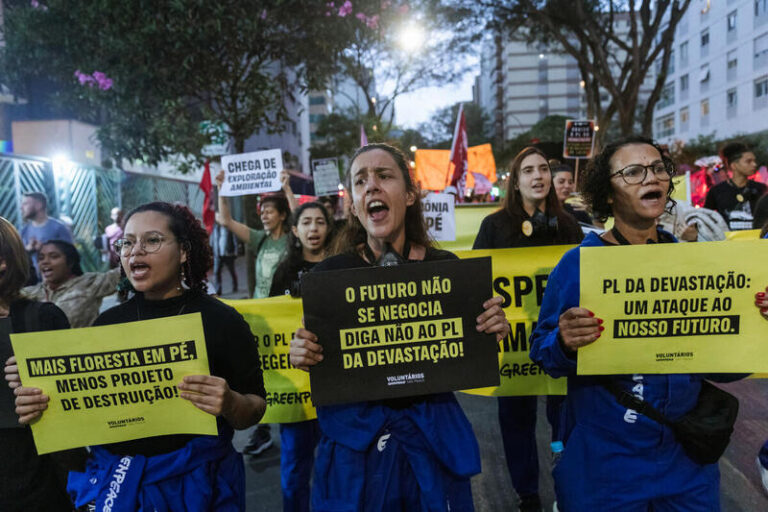In the early hours of July 17, the Brazilian Chamber of Deputies approved a bill to ease environmental licensing, which NGOs and environmentalists have dubbed the “devastation bill” and consider the nation’s most significant environmental setback in nearly 40 years. The final score was 267 in favor and 116 against it. The law changes several rules of the environmental licensing framework, which is mandatory for all enterprises that use natural resources and may cause damage to the environment or local communities. Marina Silva, Brazil’s minister of environment and climate change, wrote on Instagram that the bill “fatally wounds one of the country’s main instruments of environmental protection.” One of the bill’s most controversial points is the License by Adhesion and Commitment, under which projects would be approved by simply filling out an online form. WWF estimates around 80% of all ventures could benefit from the new rule, including major infrastructure projects such as mining dams. “That’s why we say it’s the end of environmental licensing,” Ana Carolina Crisostomo, WWF-Brasil’s conservation expert, told Mongabay. The law also creates a special environmental license for infrastructure projects deemed “strategic” by the federal administration, such as oil exploration on the Amazon coast and renewal of the BR-319 highway, a road connecting the capitals of Rondônia and Amazonas states that would affect 40 conservation areas and 50 Indigenous territories. “It is a project tailored to serve predatory sectors and dismantles decades of progress in Brazilian environmental legislation,” representative Nilto Tatto, the environmental caucus coordinator in…This article was originally published on Mongabay
Search
Recent Research
Want your Blog Article featured on our website?
Research
Featured News
Explaining Katsina’s Massive Leap to 2nd Position in the 2025 Climate Governance Ranking
In 2024, during the first edition of the Subnational Climate Governance Performance Rating and Ranking,
COP30: Firm to connect institutions with international climate finance opportunities
SISTME, a climate change and biodiversity conservation consulting firm based in Argentina, has offered to
From resistance to planetary governance, Indigenous women redefine global climate action
While world leaders negotiate behind closed doors in the Blue Zone of COP30, Indigenous Women
Sahara Group Foundation launches 16th Sahara Go Recycling Hub to boost environmental sustainability, economic empowerment
Sahara Group Foundation, the corporate social impact arm of Sahara Group, has commissioned its 16th
Climate finance is the lifeblood of climate action – Simon Stiell at COP30
Remarks delivered by UN Climate Change Executive Secretary, Simon Stiell, at the third High-Level Ministerial
UNDP, REA, GEF commission Plateau solar mini-grid to power agricultural value chains, empower rural communities
The United Nations Development Programme (UNDP), in partnership with the Rural Electrification Agency (REA) and
COP30: Africa urges world leaders to turn pledges into action
Africa has called on the world leaders to turn their pledges into action regarding the
Thousands join global marches calling on govts at COP30 to deliver climate justice
An estimated 30,000 people marched through the Brazilian city of Belém on Saturday, November 15,


